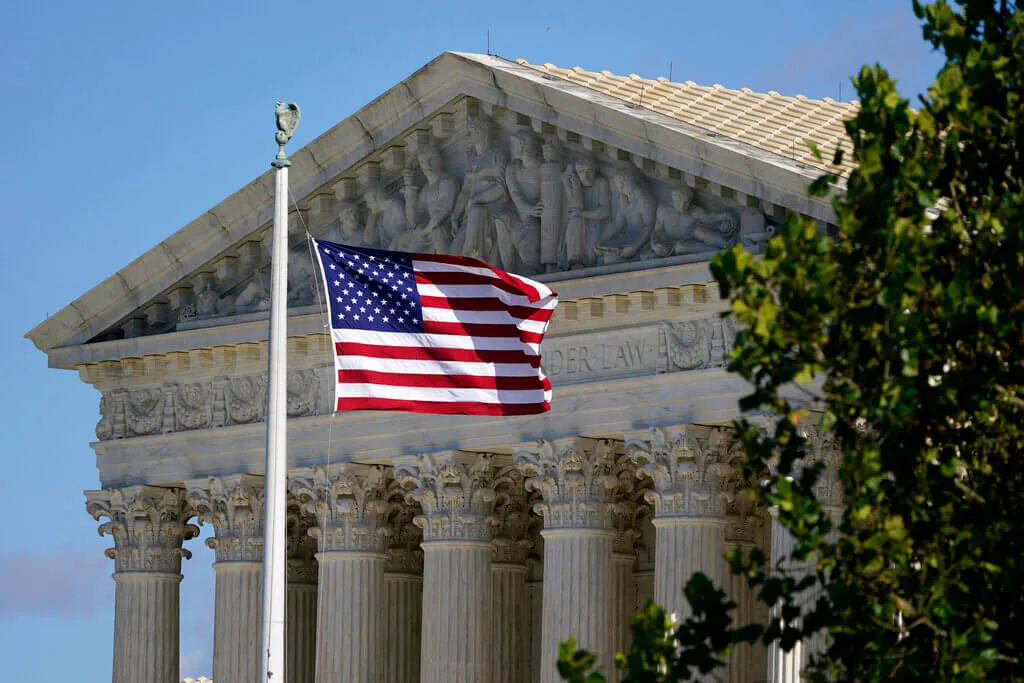
Image via AP Photo/Patrick Semansky, File.
Justice Sonia Sotomayor was the lone dissenter. Along with the Biden administration, she supports giving the island’s residents equal access to the benefits program.
WASHINGTON — The Supreme Court has upheld the differential treatment of residents of Puerto Rico, ruling that Congress was within its power to exclude them from a benefits program that’s available in all 50 states and the District of Columbia.
The court held by an 8-1 vote Thursday that making Puerto Ricans ineligible for the Supplemental Security Income (SSI) program, which provides benefits to older, disabled, and blind Americans, did not unconstitutionally discriminate against them.
RELATED: Puerto Rico Official Wants Supplemental Security Benefits for Thousands of Island Residents
Justice Sonia Sotomayor, whose parents were born in Puerto Rico, was the lone dissenter.
Writing for the court, Justice Brett Kavanaugh said the court was bound by a pair of earlier rulings that already upheld the federal law that created SSI and excluded Puerto Rico and other US territories from it. Congress later added in the Mariana Islands.
Puerto Rico has been a US territory since the Spanish American War in 1898, and its residents are US citizens, but they have no vote for president or representation in Congress. They also do not pay federal income tax.
Kavanaugh wrote that “just as not every federal tax extends to residents of Puerto Rico, so too not every federal benefits program extends to residents of Puerto Rico.”
In dissent, Sotomayor responded, “In my view, there is no rational basis for Congress to treat needy citizens living anywhere in the United States so differently from others. To hold otherwise, as the Court does, is irrational and antithetical to the very nature of the SSI program and the equal protection of citizens guaranteed by the Constitution. I respectfully dissent.”
Jose Luis Vaello-Madero, the Puerto Rico resident at the center of the case, began receiving SSI payments after he suffered a series of strokes while living in New York.
The payments continued to his bank account in New York even after he moved back to Puerto Rico. When he notified the Social Security Administration, the payments stopped and then the government sued to recover more than $28,000 it said he was not entitled to.
Lower courts sided with Vaello-Madero, ruling that the exclusion of Puerto Rico from the SSI program is unconstitutional. In a similar case in Guam, a federal judge ruled recently that residents of that Pacific island also should be able to collect SSI.
The Justice Department first filed its appeal of a ruling by the 1st US Circuit Court of Appeals during the Trump administration but maintained the case even after President Joe Biden took office.
RELATED: Democrats Request Additional $1B for Puerto Rico’s Food Assistance Program
The Biden administration has said it supports changing the law to extend SSI payments to Puerto Rico. It included a provision in its Build Back Better proposal to make residents of US territories eligible for SSI payments, but the legislation is stalled in Congress.
A separate program, Aid to the Aged, Blind, and Disabled covers residents of the territories, but it has more stringent eligibility requirements and pays less generous benefits than SSI.
Politics

Is Bad Bunny’s new song ‘Adivino’ about his short-lived romance with Kendall Jenner?
The singer's new song is undoubtedly about heartbreak, however it has some key phrases that could possibly refer to the brief romance between Bad...



The best food Marlins fans can munch on at loanDepot Park
Miami Marlins fans looking for a bite to eat during home games this season will have plenty of tasty options to choose from. The food lineup at...
Local News



Is Bad Bunny’s new song ‘Adivino’ about his short-lived romance with Kendall Jenner?
The singer's new song is undoubtedly about heartbreak, however it has some key phrases that could possibly refer to the brief romance between Bad...



The best food Marlins fans can munch on at loanDepot Park
Miami Marlins fans looking for a bite to eat during home games this season will have plenty of tasty options to choose from. The food lineup at...





